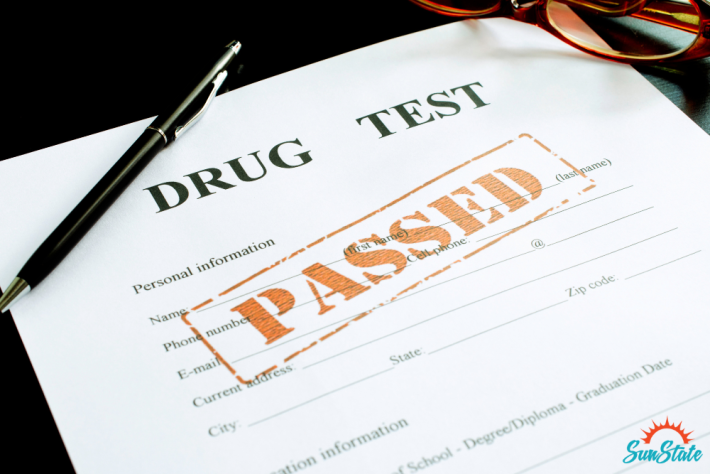Are you curious about how long weed stays in your system? You’re not alone. As marijuana becomes decriminalized or legalized in more places, understanding its effects and consequences is essential. This article uncovers the truth about weed and explores how long it stays in your system based on various factors, drug testing methods, and individual differences. Whether you’re a casual user, a medical patient, or preparing for a drug test, this guide will separate myths from facts to help you understand marijuana’s detection window.
How Marijuana is Metabolized in the Body
The Role of THC and Metabolism
When marijuana enters the body, its active compound, tetrahydrocannabinol (THC), is absorbed into the bloodstream. The absorption process differs based on the consumption method:
- Smoking or Vaping: THC enters the bloodstream rapidly through the lungs, leading to almost immediate effects.
- Edibles: THC is absorbed more slowly through the digestive system, delaying the onset of effects but prolonging their duration.
Once in the bloodstream, THC binds to cannabinoid receptors in the brain and other parts of the body, causing its psychoactive effects. However, THC doesn’t remain in its active form for long. It is metabolized by the liver into various metabolites, primarily 11-hydroxy-THC and THC-COOH. These metabolites are more water-soluble, allowing the body to excrete them via urine and feces.
Factors Affecting THC Metabolism
The speed and efficiency of THC metabolism vary among individuals due to factors like:
- Genetics: Variations in liver enzymes, especially in the cytochrome P450 family, affect how quickly THC is broken down.
- Overall Health: Liver function and metabolic rate significantly impact the body’s ability to process THC.
- Consumption Method: Smoking leads to faster absorption and clearance, while edibles result in slower, prolonged metabolism.
Factors Influencing How Long Weed Stays in Your System
Frequency of Use
- Occasional Users: THC may clear out within 2–3 days.
- Regular Users: Detection windows can extend to 10–15 days.
- Heavy Users: Daily consumption may result in detectable THC for over 30 days.
Body Composition
THC is stored in fat cells due to its lipophilic nature. People with higher body fat percentages may retain THC metabolites for longer periods.
Potency and Dosage
The amount and strength of cannabis consumed play a critical role. Potent strains and higher doses increase the levels of THC stored in the body.
Age, Metabolism, and Hydration
- Younger individuals with faster metabolisms may process THC more quickly.
- Older adults often metabolize THC more slowly.
- Hydration levels can influence how quickly THC metabolites are excreted through urine.
Methods of Drug Testing for Marijuana
1. Urine Testing
- Most Common Method: Detects THC-COOH.
- Detection Window:
- Occasional users: Up to 3 days.
- Regular users: 10–15 days.
- Heavy users: Over 30 days.
2. Blood Testing
- Detection Window:
- Occasional users: A few hours to 1–2 days.
- Heavy users: Up to a week.
Blood tests are typically used to detect recent use and are less effective for long-term detection.
3. Saliva Testing
- Detection Window:
- 1–3 days for most users.
Saliva tests are commonly used for roadside and workplace testing.
4. Hair Follicle Testing
- Longest Detection Window: Up to 90 days or more.
Hair tests can detect long-term use but are less common due to their cost and complexity.
Detox Methods and Speeding Up Elimination
Natural Detox Methods
- Stay Hydrated: Drinking plenty of water supports kidney function and facilitates the excretion of THC metabolites.
- Healthy Diet:
- High-Fiber Foods: Promote digestion and removal of toxins.
- Antioxidant-Rich Foods: Combat oxidative stress and support liver health.
- Exercise Regularly: Physical activity burns fat stores where THC accumulates, helping release metabolites into the bloodstream for excretion.
Detox Products
Commercial detox products claim to cleanse the body of THC, but their effectiveness is inconsistent. Approach these solutions with caution and research their credibility.
Common Misconceptions About Weed Detection
Myth 1: Drinking Excessive Water Guarantees a Negative Test
While hydration can dilute urine, most tests detect this and may flag it as tampering.
Myth 2: All Drug Tests Are the Same
Different tests (urine, blood, saliva, hair) have varying detection windows and purposes.
Myth 3: Marijuana Use Has No Consequences
Legal and workplace policies still penalize marijuana use, even in areas where it is legal.
Legal Implications of Marijuana Use and Drug Testing
Despite the growing legalization of marijuana, legal consequences persist:
- Workplace Policies: Many employers enforce drug-free policies, and testing positive for THC can result in job loss.
- Driving Under Influence: States impose THC blood level limits for operating vehicles.
- Federal Employment: Marijuana remains illegal at the federal level, affecting federal employees and industries like transportation.
Resources for Further Information
- National Institute on Drug Abuse (NIDA): Research and resources on cannabis and its effects.
- Drug Policy Alliance: Information on drug policy reforms and legal rights.
- Healthcare Providers: Personalized advice on marijuana use and drug testing.
Conclusion: Stay Informed About Marijuana and Drug Testing
Understanding how long marijuana stays in your system is crucial for making informed decisions about its use. Factors like frequency, body composition, and testing methods all influence detection windows. By debunking common myths and leveraging credible resources, individuals can better prepare for drug tests and navigate the evolving legal landscape surrounding marijuana use.
Legal Disclaimer:
The content provided in this blog post is for informational purposes only and is not intended as medical advice. Always consult with a licensed healthcare provider before using any CBD or hemp-derived products, especially if you are pregnant, breastfeeding, or have any medical conditions.
Sun State Hemp makes no representations or warranties regarding the accuracy, completeness, or applicability of any information on this website. All content is intended solely for general knowledge and educational purposes. You should always consult with a qualified healthcare professional before making any decisions regarding the use of hemp, cannabinoids, or other related products.
By using this website, you agree that Sun State Hemp is not responsible for any adverse effects, damages, or legal issues that may arise from the use or interpretation of the information provided. You further agree to hold Sun State Hemp harmless from any claims, actions, or lawsuits related to the content on this website.
The use of hemp and related products may not be appropriate for everyone, and its legal status varies by location. It is your responsibility to comply with local laws and regulations.
Sun State Hemp does not assume any liability for any injury, harm, or legal consequences arising from the use of any products mentioned on this site. Always seek professional advice and make informed decisions based on your specific needs and circumstances.
Proudly Made in the USA.
This product contains less than 0.3% THC and is derived from hemp stalk. The Food and Drug Administration (FDA) has not evaluated this statement. This product is not intended to diagnose, treat, cure, or prevent any disease. Pregnant or breastfeeding women should not use this product, as its use may pose potential risks.



